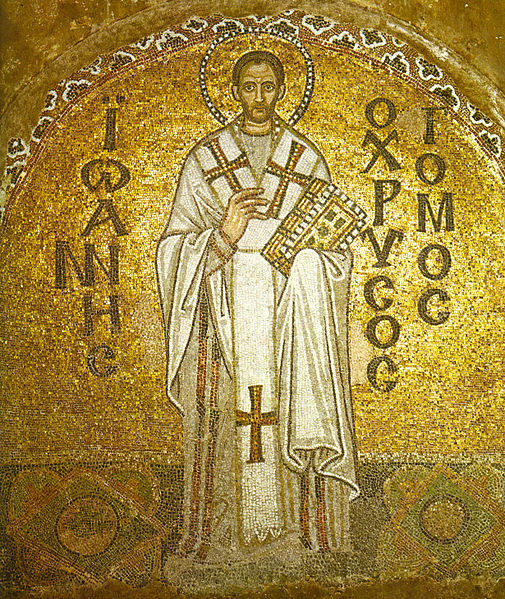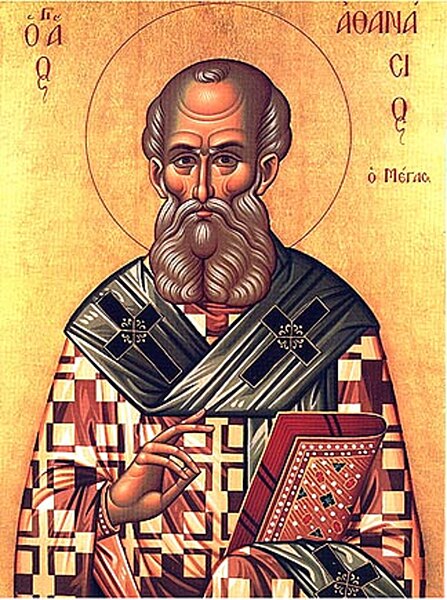John Chrysostom was an important Early Church Father who served as archbishop of Constantinople. He is known for his preaching and public speaking, his denunciation of abuse of authority by both ecclesiastical and political leaders, his Divine Liturgy of Saint John Chrysostom, and his ascetic sensibilities. The epithet Χρυσόστομος means "golden-mouthed" in Greek and denotes his celebrated eloquence. Chrysostom was among the most prolific authors in the early Christian Church.
A Byzantine mosaic of John Chrysostom from the Hagia Sophia
John Chrysostom confronting Aelia Eudoxia, in a 19th-century anti-clerical painting by Jean-Paul Laurens
The exile of John Chrysostom. Scene from the 11th century Menologion of Basil II.
Byzantine 11th-century soapstone relief of John Chrysostom, Louvre
The Church Fathers, Early Church Fathers, Christian Fathers, or Fathers of the Church were ancient and influential Christian theologians and writers who established the intellectual and doctrinal foundations of Christianity. The historical period in which they worked became known as the Patristic Era and spans approximately from the late 1st to mid-8th centuries, flourishing in particular during the 4th and 5th centuries, when Christianity was in the process of establishing itself as the state church of the Roman Empire.
The Church Fathers, an 11th-century Kievan Rus' miniature from Svyatoslav's miscellany
St. Athanasius, depicted with a gospel book, an iconographic symbol used mostly for priests and bishops as preachers of the gospel
The Four Great Latin Church Fathers by Jacob Jordaens
Print of Jerome in his study. Preserved in the Ghent University Library.








